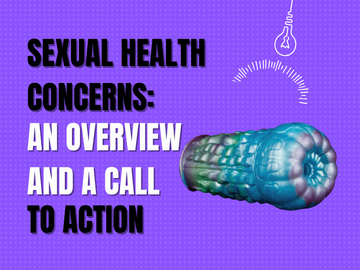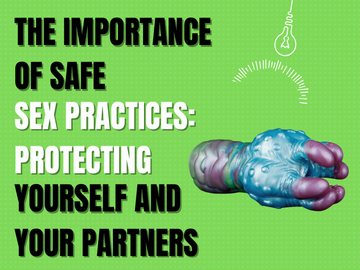As we navigate the complexities of modern relationships, it's essential to prioritize our sexual health and well-being. Unfortunately, many of us face common sexual health concerns that can have significant physical and emotional consequences if left unaddressed. In this article, we'll explore some of the most prevalent issues affecting our sexual health and discuss ways to mitigate them.
STIs: The Silent Threat
Sexually Transmitted Infections (STIs) are a significant concern for individuals engaging in sexual activities. STIs can be transmitted through vaginal, anal, or oral sex, as well as through skin-to-skin contact. Common STIs include:
Chlamydia
Gonorrhea
Syphilis
HIV/AIDS
The risk of contracting an STI is higher among people with multiple sexual partners, those who don't use condoms consistently, and individuals engaging in unprotected sex.
Unwanted Pregnancy: A Life-Changing Consequence
Unplanned pregnancy can have a profound impact on an individual's life. It may lead to financial strain, emotional distress, and significant lifestyle changes. Common methods of unintended pregnancy prevention include:
Condoms
Hormonal birth control (e.g., pills, patches)
Intrauterine devices (IUDs)
Sterilization procedures
It's crucial to discuss and understand your partner's reproductive health goals and preferences before engaging in sexual activities.
Other Sexual Health Concerns
In addition to STIs and unwanted pregnancy, other common sexual health concerns include:
Sexually transmitted blood infections (STBIs), such as Hepatitis B and C
Genital herpes
Human papillomavirus (HPV) infections
Premature ejaculation
Erectile dysfunction
A Call to Action
To prioritize your sexual health, consider the following steps:
Educate yourself : Learn about the common STIs, their symptoms, and transmission risks.
Practice safe sex : Use condoms consistently, and discuss reproductive health goals with your partner.
Get tested regularly : Schedule regular STI testing to detect infections early on.
Consult a healthcare professional : If you experience any unusual symptoms or concerns, consult a healthcare provider for guidance.
Sexual health is an essential aspect of overall well-being. By acknowledging the common sexual health concerns and taking proactive steps to mitigate them, we can ensure our physical and emotional safety. Remember, open communication with your partner, regular testing, and informed decision-making are crucial to maintaining healthy and fulfilling sexual relationships.
References:
Centers for Disease Control and Prevention (CDC). (2022). Sexually Transmitted Diseases (STDs).
World Health Organization (WHO). (2022). Reproductive Health.
American Sexual Health Association (ASHA). (2022). Sexual Health.
Staying Safe and Healthy During Sexual Activity
Sexual Health Concerns: An Overview and a Call to Action










